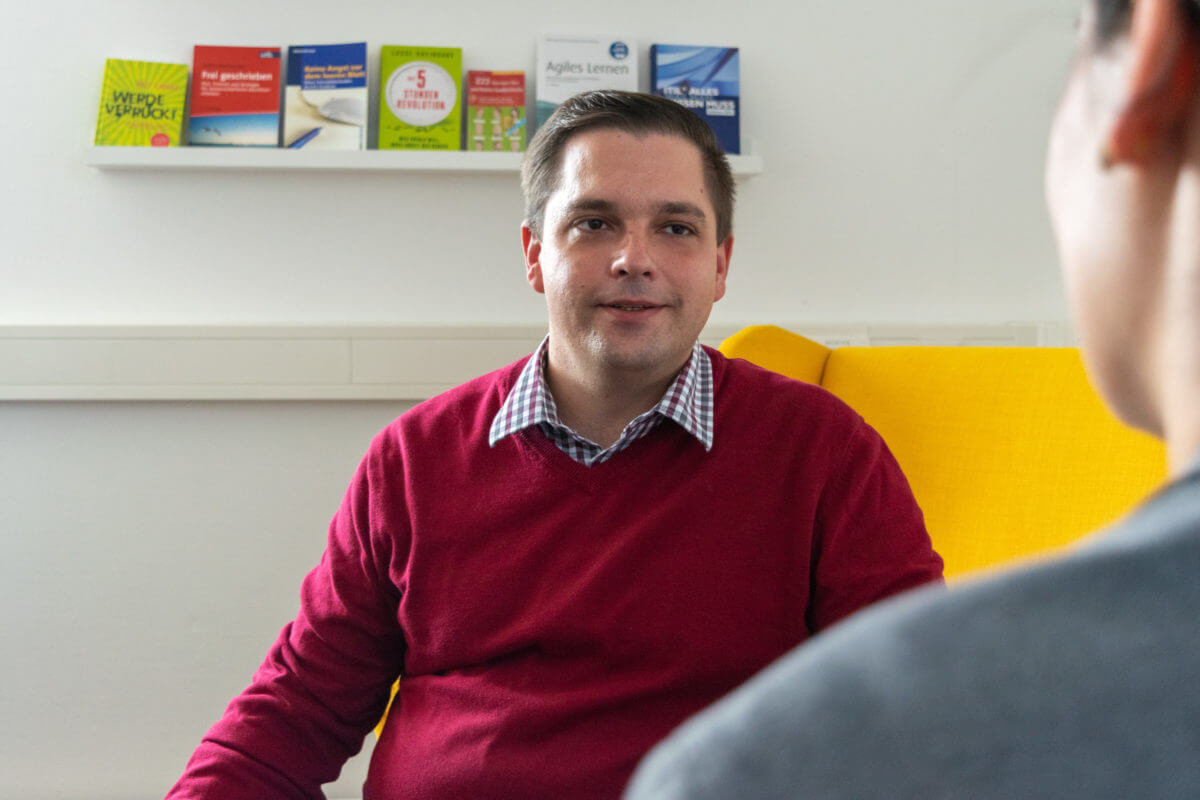Interview with our Atlassian Operations Engineer Michael Eberhardt
DevOps meets Atlassian Toolchain
We asked ourselves: How can DevOps be realized with the Atlassian toolchain? We asked Michael Eberhardt, one of our Atlassian Operations Engineers, about this. Michael joined Polygran in early 2018 and is an expert in Atlassian products. In this interview, he tells us what the Atlassian Toolchain is, what benefits it offers, and how you can use the Atlassian Toolchain to successfully implement DevOps.

What are your responsibilities as an Atlassian Operations Engineer?
As an Atlassian Operations Engineer, you can quickly find yourself working full time. Of course, this includes administration, deployment, updates and planning of Atlassian environments and tools. But beyond that we complement our portfolio with solutions in the area of database, web server or endpoint, virtualization, monitoring, storage and backup. In this way, we permanently ensure the best possible user experience when using Atlassian products and enable our customers to use the tools correctly in the long term.
What is the Atlassian toolchain?
As a child of the 90s, I always ask if you know the Power Rangers. When the Power Rangers fought against a superior opponent, they always combined their Zords into a Megazord. I think that’s exactly it: the Atlassian toolchain is the product that results from the fusion of all Atlassian tools and is the overpowering counterpart to master the DevOps strategy.
"The Atlassian Toolchain is the product that results from the amalgamation of all Atlassian tools and is the overpowering adversary to address the DevOps strategy."
When does the Atlassian toolchain come into play? For which use cases is it used?
A classic use case is software development. But we often find that so much more is possible. We are currently working on a change / configuration management implementation for our Linux server and want to use the Atlassian toolchain for this.
Who are the Atlassian Toolchain products for?
Simply put, for anyone who wants to collaborate transparently and sustainably. On the one hand, we have the team leader who always knows about the status of his project. On the other hand, the specialists who really only want to focus on the work of the project. Classics, such as Jira or Confluence, can of course be used with all their familiar functionalities outside the toolchain.
What are the benefits of the Atlassian Toolchain?
The developer can work centrally from one tool and is automatically informed about the development status. Extensive build tests ensure the quality of the code and save time and resources. Added to this is maximum transparency with regard to traceability. The project is transferable during downtime, simplifies team communication, is team size independent, and can enable complete decentralized development without data loss.
What are the limitations or drawbacks of the Atlassian toolchain?
Within the Atlassian toolchain, a lot of emphasis is placed on working across boundaries with the other tools in the toolchain. However, if you want to leave the toolchain, you usually have to resort to third-party plug-in implementations. Good plug-ins usually cost a lot of money and require time-consuming modification and further development. But honestly, I can’t really see a boundary with the toolchain.
What is your favorite product from the Atlassian toolchain?
Clearly the Jira Service Desk: A central point of contact for users / colleagues and their problems and requests. Coupled to the knowledge base Confluence, the user is already shown the possible solution when creating a problem. With a little implementation work, you no longer have first-level overhead.
When should you decide to use the Atlassian Toolchain?
As a passionate and convinced Atlassian Operations Engineer, I say of course: always. For example, what I find outstanding is Atlassian’s subsidy for small teams. Currently, you can get the entire 10-user toolchain, self-managed, for low licensing costs in the server variant, and Jira Service Desk is also included. Which is not to say that we can’t make it big, quite the opposite. As already mentioned, one should be aware of the fact that transparency and sustainability can arise in the cooperation. However, using the toolchain is no guarantee that it will. Successful work, and I hope you agree with me, depends on so many factors. But if you are looking for optimization, innovation and ease in your daily tasks and also ready for change, then you should choose Atlassian Toolchain.
"DevOps is more of a philosophy. All elements need to work cross-functionally toward the common goal."
How is the Atlassian toolchain different from other tools and applications for the DevOps methodology?
I would call it less of a methodology. DevOps is more of a philosophy. All elements must work cross-functionally toward the common goal. I don’t think it matters whether you use DevOps thinking for your software / systems development or also for your enterprise management. And that’s where I see the difference from other products. With the Atlassian toolchain you have the possibility to realize everything, of course, also because each tool is a sophisticated solution in itself.
How is the Atlassian toolchain different from other tools and applications for the DevOps methodology?

Related articles

Atlassian cloud migration: a roadmap

How to optimize your ITSM frameworks


